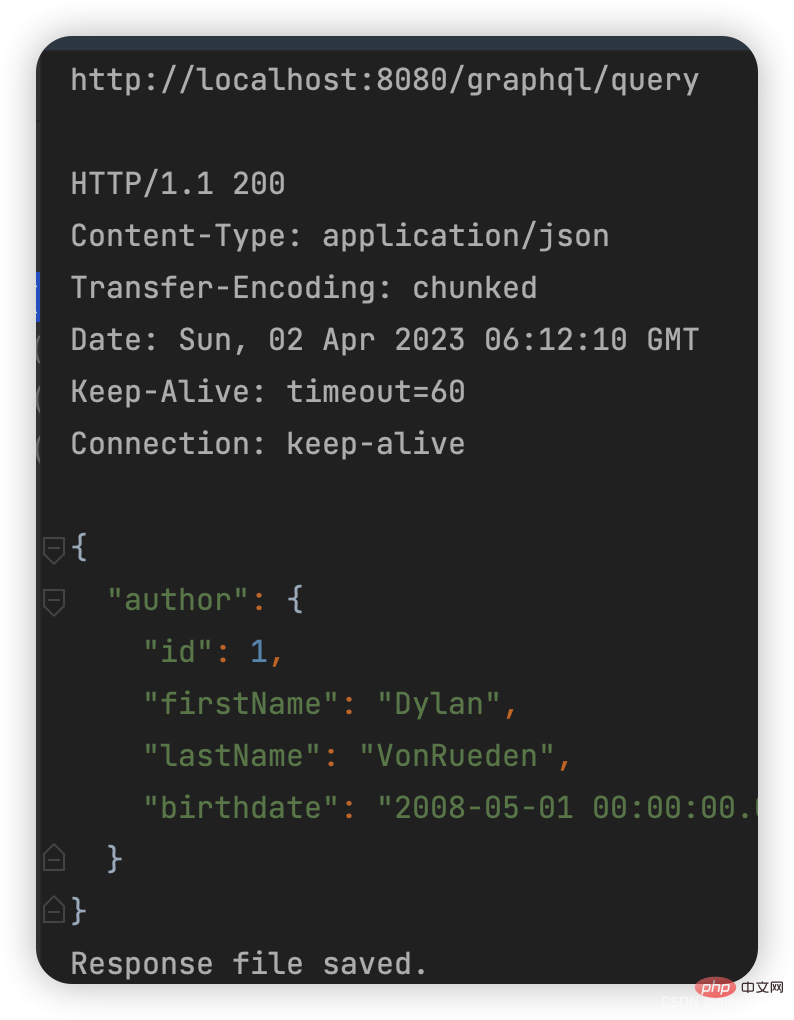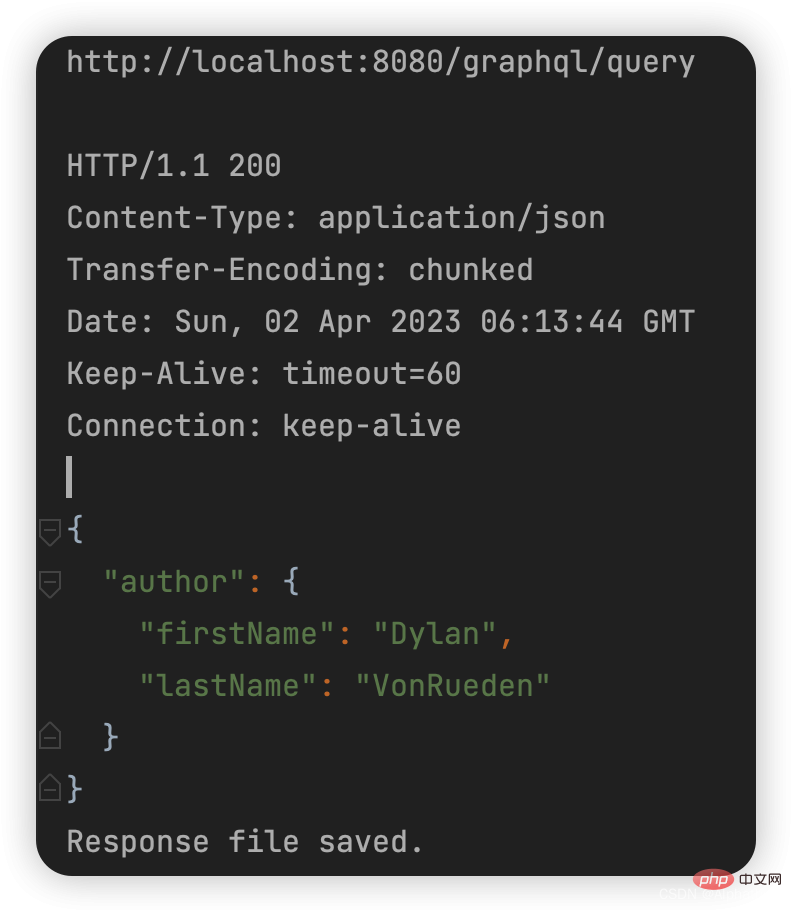传统的Restful API 存在诸多的问题,首先它无法控制返回的字段,前端也无法预判后端的返回结果,另外不同的返回结果对应不同的请求地址,这就导致了多次请求的问题。而GraphQL正是基于这样的背景而构建出来的API查询语言,相对于传统Restful API 它具有以下几个优点:
灵活性:GraphQL 可以根据客户端的需求灵活地查询数据,而不是像 RESTful API 那样返回固定结构的数据。
减少网络请求:GraphQL 允许客户端在一次请求中获取多个资源,这有助于减少网络请求的数量和提高性能。
强类型:GraphQL 有一种强类型系统,客户端可以在编译时检测到查询中的错误,这有助于减少运行时错误。
可缓存:GraphQL 具有可缓存性,这意味着服务器可以缓存查询的结果,从而提高性能和可伸缩性。
文档化:GraphQL 具有自我文档化的能力,使得开发者可以快速了解 API 的结构和功能。
如果后端语言为Java,那么GraphQL Java则是实现GraphQL的基础库。另外Spring已经整合了GraphQL,如果项目中使用了Spring,那么更加推荐Spring GraphQL。
Spring GraphQL的开发总体分为如下几个步骤
添加 Spring GraphQL 依赖项
在您的项目中添加 Spring GraphQL 依赖项。您可以通过 Maven 或 Gradle 等构建工具来添加依赖项。例如,如果您使用 Maven,则可以添加以下依赖项
<dependency>
<groupId>org.springframework.boot</groupId>
<artifactId>spring-boot-starter-graphql</artifactId>
</dependency>定义 GraphQL Schema
在您的应用程序中定义 GraphQL Schema。Schema 定义了可查询的类型和字段。您可以使用 SDL(Schema Definition Language)或编程方式定义 Schema。
对于Spring Boot 工程来说schema文件放到resources/graphql/目录下,文件名后缀graphqls,下面是我定义一个的简单的schema.graphqls。
它指定了两个查询实现,author(id:Int)表示通过id查询Author,allAuthors则表示查询Author数组。
schema {
query: Query
}type Query {
author(id:Int): Author
allAuthors: [Author]
}type Author {
id:Int
firstName:String
lastName:String
email:String
birthdate:String
}
实现RuntimeWiringConfigurer
RuntimeWiringConfigurer是实现GraphQL获取数据的核心,使用GraphQL并不能直接去掉Mybatis/Jpa这类持久层框架,从数据库获取数据仍然需要这类框架的支持。
而RuntimeWiringConfigurer则类似于Spring中的service层,它是实现基础数据的核心。
以下是一个简单示例:
@Component
public class AuthorWiring implements RuntimeWiringConfigurer {
private final AuthorRepository authorRepository;
public AuthorWiring(AuthorRepository authorRepository) {
this.authorRepository = authorRepository;
}
@Override
public void configure(RuntimeWiring.Builder builder) {
builder.type("Query", typeWiring -> typeWiring
.dataFetcher("allAuthors", environment -> authorRepository.findAll())
.dataFetcher("author", environment -> authorRepository.getReferenceById(environment.getArgument("id")))
}
}这里configure方法内部分别定义了两个DataFetcher对象,用来指定author和allAuthors查询数据的方式,可以看出依然是通过JPA去查询数据。
定义GraphQL Controller
我么定义GraphQLController用来接收web请求的入参,示例如下:
@RestController
@RequestMapping("graphql")
public class GraphQLController {
private final GraphQL graphQL;
@Autowired
public GraphQLController(GraphQlSource graphQlSource) {
graphQL = graphQlSource.graphQl();
}
@PostMapping("query")
public ResponseEntity<Object> query(@RequestBody String query) {
ExecutionResult result = graphQL.execute(query);
return ResponseEntity.ok(result.getData());
}
}代码中GraphQL对象是执行查询的入口,但GraphQL只有一个私有的构造方法,所以不能直接注入,必须通过注入GraphQlSource的方式来获取GraphQL对象。
注意在GraphQL中我们只能使用String来接收参数,无法使用model对象,这是因为Graph请求参数并不是json结构。
测试Graph请求
我们创建一个graphql.http的文件,用于在idea中执行http请求
### Send POST request with json body
POST http://localhost:8080/graphql/query
Content-Type: application/json{
author(id: 1) {
id
firstName
lastName
birthdate
}
}### Send POST request with json body
POST http://localhost:8080/graphql/query
Content-Type: application/json{
allAuthors {
id
firstName
lastName
birthdate
}
}
运行author(id: 1) 的查询,可以看到正常返回结果了。如果我们只需要 firstName和lastName两个字段,那么在请求入参中直接去掉id和birthdate就好了,而不用改动任何后端代码。


以上是SpringBoot怎么使用GraphQL开发Web API的详细内容。更多信息请关注PHP中文网其他相关文章!




